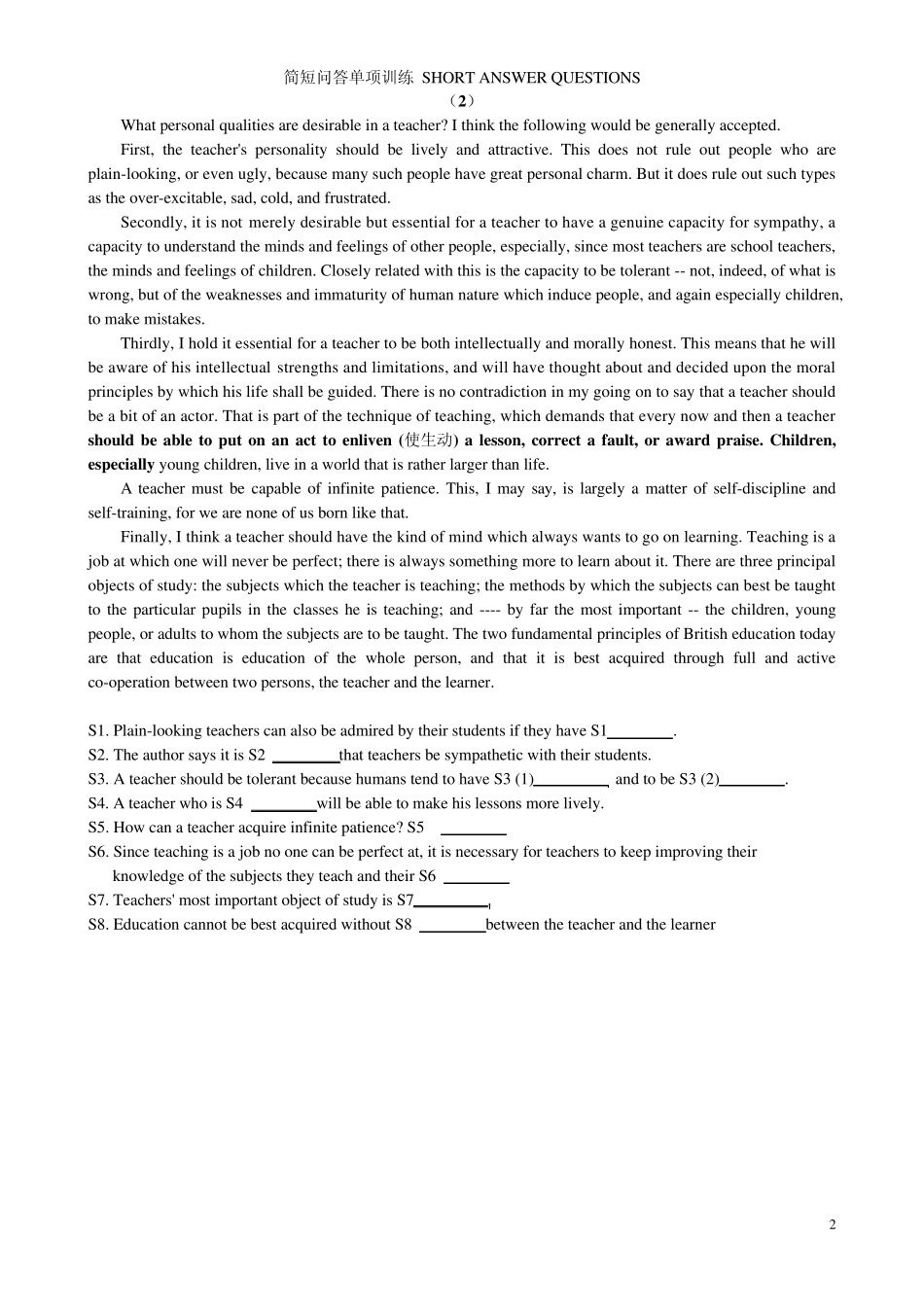简短问答单项训练 SHORT ANSWER QUESTIONS 1 Directions: In this part there is a short passage with some questions or incomplete statements. Read the passage carefully. Then answer the questions or complete the statements in fewest possible words. Your answer may be a word, a phrase, or a short sentence. Fewest possible words. Your answer may be a word, a phrase, or a short sentence. Write your answers in the spaces provided on the right of the page. (1) Sports is one of the world’s largest industries, and most athletes are professionals who are paid for their efforts. Because an athlete succeeds by achievement only—not by economic background or family connections—sports can be a fast route to wealth, and many athletes play only for money than for love. This has not always been true. In the ancient Olympics the winner got only a wreath of olive leaves (橄榄叶花环). Even though the winners became national heroes, the games remained amateur for centuries. Athletes won fame, but no money. As time passed, however, the contests became increasingly less amateur and cities began to hire athletes to represent them. By the fourth century A.D., the Olympics were ruined, and they were soon ended. In 1896, the Olympic games were revived (使再度兴起)with the same goal of pure amateur competition. The rules bar athletes who have ever received a $50 prize or an athletic scholars or who have spent four weeks in a training camp. At least one competitor in the 1896 games met these qualifications. He was Spiridon Loues, a water carrier who won the marathon race, After race, a rich Athenian offered him anything he wanted. A true amateur, Loues accepted only a cart and a horse. Then he gave u...


